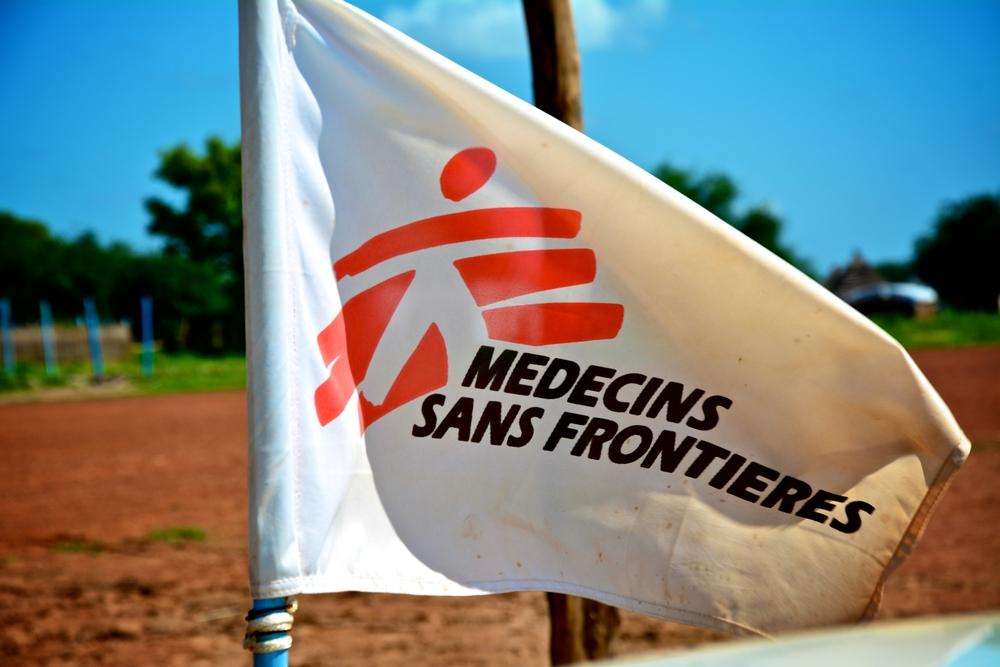The ongoing military offensive to retake Mosul has forced people who have already lived through extreme trauma to flee the city and nearby villages. "They have endured two years of the so-called Islamic State (IS) occupation of their towns [and] villages, airstrikes, Iraqi forces fighting IS, [and] fleeing for their lives and arriving in a displaced persons camp," says Bilal Budair, Doctors Without Borders/Médecins Sans Frontières (MSF) mental health manager in Erbil. "These people had to leave very quickly, taking nothing with them. And now they find themselves confined in a camp."
Some 30,000 people currently live in camps in Hassansham and Khazer, some 22 miles east of Mosul. MSF’s mental health teams see around 45 patients a day. The teams, each comprising a psychiatrist, a psychologist, and a community worker, previously worked with Syrian refugees in northern Iraq in 2013. Then, in 2014, they assisted displaced Iraqis who fled Mosul when IS took control of the region. Now, with the escalating population displacement in Ninewa Governorate and the mid-October launch of the fight to retake Mosul, MSF’s teams have been seeing patients suffering from severe mental health disorders.
Deep Trauma
Since November, patients consulting MSF services have exhibited escalating signs of trauma. Many describe witnessing public executions in the markets and seeing the corpses of murder victims strung up and left hanging from bridges for days on end. Death by stoning, beheadings, torture, and corporal punishment have become commonplace, leaving many deeply traumatized.
Some of the stories told to MSF mental health workers are so shocking they are hard to believe. One man described being forced to kill his own child because the boy used a swearword. But the facts are irrefutable when corroborated by multiple people. The extremity of such experiences has driven many patients who otherwise never would have considered seeing a psychiatrist or psychologist to seek help from MSF mental health teams.
Many of the people displaced in recent months also witnessed intense fighting in their neighborhoods or villages. They’ve watched friends or relatives die, like a woman who came to see an MSF team with her 10-year-old son. Her friend’s little girl was killed when a mortar shell fell on their house. She saw the child’s body, and so did her son, who was her friend. These people have fled Mosul or nearby villages for the safety of the camps, but they’re still terrified and live in fear of being exposed yet again to Islamic State violence.
What is MSF doing south of Mosul, in Qayyarah? - Emergency Coordinator Elisabeth Jaussaud explains pic.twitter.com/d7E4ayVqkl
— Doctors w/o Borders (@MSF_USA) January 10, 2017
Addressing the Needs
The MSF mental health teams working in the camps in Hassansham and Khazer provide consultations to patients suffering from severe depression, anxiety, acute stress, or post-traumatic stress disorder. They also see patients already ill with chronic diseases such as epilepsy and psychoses before they were forced to flee and who now need to resume treatment. Other organizations delivering primary health care or psychological support services in the camps also refer patients suffering from disturbed sleep and other acute disorders to the MSF team.
After several weeks, most people displaced from their homes start to acclimate to life in the camps, but others go on to develop lasting disorders. Many look to the future with despair and fear that their lives are over. MSF’s goal is to ensure that these people receive the psychology and psychiatry services they need.
"We treat all cases, moderate as well as severe," says Budair. "In fact, MSF is the only aid organization treating severe cases and providing psychiatric care. We are on-hand to assist people and identify the most vulnerable. We’re here to help them and anyone close to them experiencing difficulties in adapting to the situation."




